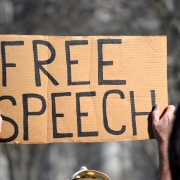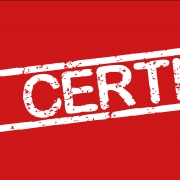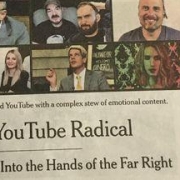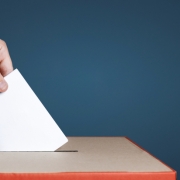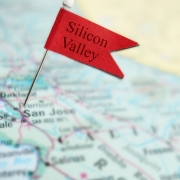The World Wide Web gave individuals limitless knowledge at the click of a button. And with this privilege, came the responsibility of each user to do his or her own research in order to determine which information was accurate and which was not.
But as the internet has experienced 20+ years of mainstream use, public opinion has shifted. Now, instead of celebrating the free flow of information and letting people decide for themselves, many people are championing censorship all in the name of silencing opinions with which they disagree. And now, even governments are getting involved in the quest to stop “fake news” and the latest example comes from California.
A Terrifying Precedent
Currently, on top of California Governor Jerry Brown’s desk sits a bill that, if signed, could set a dangerous precedent as to how far a state can go to stop the flow of information. Recently, the California Senate and State Assembly passed S.B. 1424, which has has been dubbed the “Internet: social media: advisory group” act.
Passed in the spirit of curbing the spread of “fake news,” the bill would allow for an advisory group to investigate the spread of false information online and formulate a plan for how it could be stopped.
The text of the bill states:
“The Attorney General shall, subject to the limitations of subdivision (d), establish an advisory group consisting of at least one member of the Department of Justice, Internet-based social media providers, civil liberties advocates, and First Amendment scholars, to do both of the following:
(a) Study the problem of the spread of false information through Internet-based social media platforms.
(b) Draft a model strategic plan for Internet-based social media platforms to use to mitigate the spread of false information through their platforms.”
Silencing the Opposition
When Facebook and eventually Twitter made the move to block Alex Jones from using its platforms, many people were nervous. Facebook is most certainly a private company, and a private company has every right to censor whomever it pleases, but censorship in any capacity it concerning. And while it was one thing for private groups to practice this type of censorship, it is quite another for governments to get involved.
Many might be under the assumption that the government would only use this power for “good,” But that does not seem to be the case. As Barry Brownstein says:
“Most likely, Californians are not concerned about “fact-checking” content like “a mile is 5290 feet” or an appeal to form a flat Earth Facebook group; such content poses no threat to entrenched interests. Instead, “fact-checking” will be deployed against those who express doubt, for example, about climate change, vaccine safety, or “educating” children about gender dysphoria.”
No matter how much you may disagree with the groups described above, everyone has a right to speak their truth. And those of us on the receiving end can choose whether or not we want to accept what we are being told. But even if we vehemently disagree with someone, we should never use the government to silence their voice. But this is exactly what this California bill will do.
Under the First Amendment, governments are forbidden from passing laws that restrict free speech. There is no disclaimer that amends this protection to allow for the censorship of potentially untrue speech. And yet, governments are somehow under the impression that it is their job to or worse, their duty to make sure they are sifting through information before it is allowed to be disseminated to the public and this should frighten everyone.
Our modern world is so extraordinary partly because information is accessible to just about everyone. Throughout most of human history, only the elite had access to knowledge. But the internet has liberated information and by opening the floodgates, we have been exposed to both true and untrue information. But getting to make our own decisions absent government coercion is our right.
Supporters of free speech and anyone else who believes that individuals are responsible for their making their own decisions should be extremely concerned about this bill. Legislating speech is a slippery slope, and once we lose one right, the rest will quickly follow.
